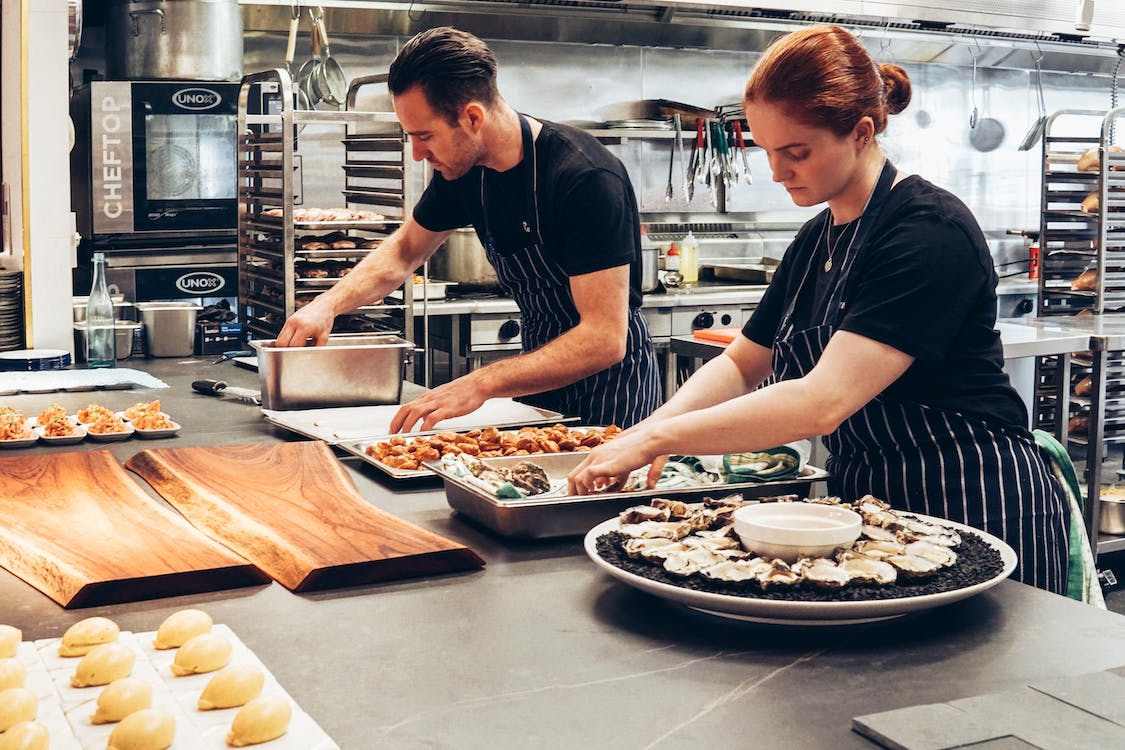Venturing into the world of catering and events is an exhilarating endeavor that requires a unique blend of culinary expertise, organizational prowess, and customer-centric focus. Whether you’re passionate about creating memorable dining experiences or orchestrating seamless events, starting a catering and events business can be a fulfilling and lucrative pursuit. In this comprehensive guide, we’ll explore key tips and strategies to help aspiring entrepreneurs lay the foundation for a thriving and successful venture.
1) Define Your Niche and Specialty:
In the competitive realm of the catering business, defining a niche and specialty is paramount for success. This involves honing in on a specific area or style that sets your catering services apart from the rest. Whether it’s gourmet cuisine, a focus on dietary preferences such as vegan or gluten-free options, or specialization in catering for specific events like weddings, a sprinkle baby shower or corporate gatherings, a well-defined niche establishes a unique identity.
It not only helps target a specific market but also allows you to showcase your expertise and passion, making your catering business more appealing to clients seeking a distinctive and tailored experience. By identifying and cultivating a niche, you position your catering business as a go-to option for clients looking for specialized services that align with their preferences and event requirements.
2) Create a Detailed Business Plan:
Crafting a detailed business plan is a crucial step when launching a catering business. This comprehensive document serves as a roadmap, outlining your business goals, target market, competitive analysis, financial projections, and operational strategies. It provides a structured foundation for decision-making and guides your business toward success.
Your business plan should articulate your catering business’s unique value proposition, detailing how you will stand out in a competitive market. Additionally, it helps you anticipate challenges and devise strategies to overcome them. Whether seeking financial support from investors or mapping out your business trajectory, a well-crafted business plan is an indispensable tool. It ensures that you have a clear vision for your catering business, enhancing your ability to navigate challenges and capitalize on opportunities in the dynamic culinary and events industry.
3) Building a Strong Brand Identity:
Establishing a strong brand identity is essential for the success of a catering business. Begin by designing a memorable and cohesive logo that reflects the essence of your brand. Consistency is key across all visual elements, including marketing materials, website, and social media platforms. Develop a unique color scheme, typography, and imagery that resonate with your target audience.
Emphasize the values and qualities that set your catering business apart, whether it’s a commitment to high-quality cuisine, exceptional service, or a specific culinary niche. Utilize professional photography to showcase your culinary creations and events, creating a visually appealing and enticing brand image. By investing in a strong and consistent brand identity, you not only enhance brand recognition but also build trust with potential clients, positioning your catering business as a reputable and distinctive choice in the competitive culinary landscape.

4) Emphasize High-Quality Culinary Offerings:
Prioritize the quality of your culinary offerings. Invest in skilled chefs, source fresh and premium ingredients, and create a diverse and appealing menu. Exceptional food is often the highlight of any event, and a reputation for high-quality cuisine will contribute significantly to your business’s success.
5) Effective Marketing and Networking:
Develop a robust marketing strategy to promote your catering and events business. Utilize social media platforms, create engaging content, and showcase your work through professional photography. Additionally, actively network with event planners, venue managers, and other professionals in the industry to expand your reach and gain referrals.
6) Invest in Professional Equipment:
Ensure that you have the necessary professional-grade equipment to cater to events of varying sizes. From high-capacity ovens to quality tableware, investing in reliable equipment is essential for delivering a seamless and efficient service. Well-maintained equipment also contributes to the safety and success of your operations.
7) Develop a Seamless Booking Process:
Streamline your booking process to make it easy for clients to inquire, request quotes, and secure your services. Utilize online booking platforms, maintain a responsive website, and provide clear information about your offerings and pricing. A user-friendly booking process enhances the overall customer experience.
8) Prioritize Exceptional Customer Service:
Make exceptional customer service a cornerstone of your business. Communicate clearly with clients, respond promptly to inquiries, and go the extra mile to exceed expectations. Especially when its special events such as weddings, special family events. Positive client experiences lead to repeat business and valuable word-of-mouth referrals, contributing to the long-term success of your catering and events business.
9) Offer Customization and Flexibility:
Provide clients with options for customization to tailor your services to their specific needs. Whether it’s accommodating dietary restrictions, adjusting menu items, or adapting to unique event themes, offering flexibility demonstrates a client-focused approach that can set you apart from competitors.
10) Stay Updated on Industry Trends:
Stay abreast of the latest trends in both the catering and events industries. From emerging culinary trends to innovative event design concepts, being aware of industry developments allows you to stay relevant and offer clients fresh and contemporary experiences.

11) Build Strong Vendor Relationships:
Cultivate strong relationships with reliable vendors, including suppliers of ingredients, event rentals, and floral arrangements. Establishing a network of trusted partners ensures that you can consistently deliver quality services and have the support needed to make each event a success.
12) Invest in Employee Training:
Ensure that your staff is well-trained in both culinary skills and event management. Staff members should be proficient in customer service, time management, and problem-solving. Investing in ongoing training contributes to a cohesive and skilled team, which is essential for delivering top-notch services.
13) Create Packages for Convenience:
Creating packages for convenience is a strategic move when launching a catering business. These curated packages simplify the decision-making process for clients by offering comprehensive solutions that encompass catering, event planning, and decor services.
Clearly outlining what each package includes provides transparency and helps clients make informed choices aligned with their event needs and budget. Packages streamline the booking process, making it convenient for clients to access a range of services, ultimately enhancing their overall experience. By offering convenience through thoughtfully crafted packages, your catering business can cater to a broader clientele and stand out in a competitive market.
14) Manage Finances Wisely:
Prudent financial management is vital when initiating a catering business. Establish a detailed budget, closely monitoring income and expenses to ensure fiscal responsibility. Track cash flow meticulously to maintain liquidity and meet operational needs. Carefully consider investments in equipment, staff, and marketing, aligning expenditures with long-term business goals. Implementing sound financial practices from the start builds a solid foundation for stability and growth.
Regularly review financial performance, adjusting strategies as needed to optimize profitability. By managing finances wisely, your catering business can navigate challenges effectively and capitalize on opportunities for sustained success.
15) Seek Feedback and Continuous Improvement:
Actively seek feedback from clients after each event. Use this feedback as a tool for continuous improvement, identifying areas where you can enhance services or address any concerns. Client input is invaluable for refining your offerings and ensuring long-term client satisfaction.
In conclusion, launching and running a successful catering and events business requires a combination of culinary artistry, business acumen, and a commitment to customer satisfaction. By defining your niche, investing in quality, prioritizing exceptional service, and staying attuned to industry trends, you can create a business that not only meets but exceeds the expectations of your clients. With careful planning, dedication, and a passion for creating memorable experiences, your catering and events business can thrive in the dynamic and rewarding landscape of the hospitality industry.





